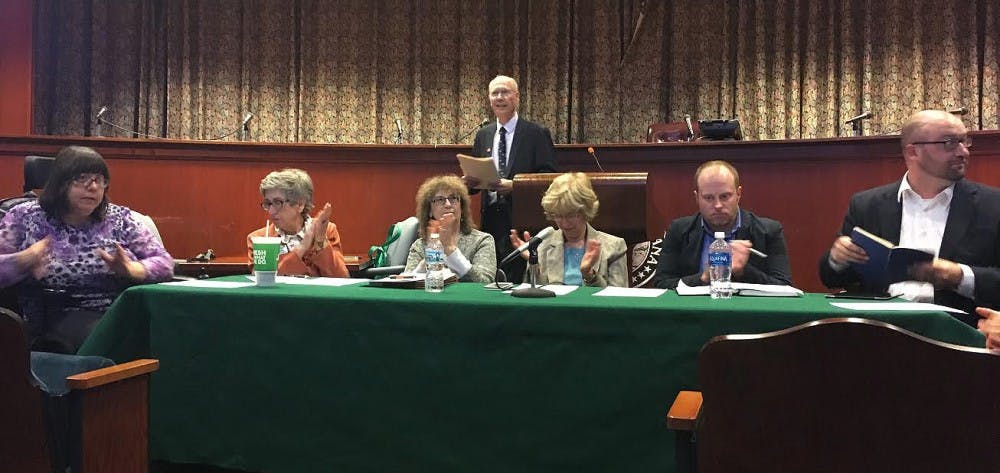City Hall has decided Muncie needs better public transportation options, and they held a meeting to figure out what to do about it.
A panel of community members spoke on April 26 to discuss the current state of mass transit in Muncie and what they would like to see in the future.
Former Ball State professor Roger Hollands started off the presentation by listing three goals:
- Help the audience better understand public transportation developments going on both locally and in Indianapolis
- Demonstrate why better public transportation from Muncie to Indianapolis is needed
- Demonstrate why increased bus service is needed within Delaware County
Sue Errington, state representative for Indiana District 34, which includes Muncie, was first introduced to the issue of mass transit in the legislature in 2006. She said in 2013, more than 1,000 people traveled to Indianapolis from Muncie, while only 300 or 400 people came to Muncie from Indianapolis.
“They saw Ball State as a group that would be interested in commuting between Ball State and Indianapolis,” Errington said. “I got to thinking, 'I think they’re right. … The students, the faculty [and] others connected with Ball State would be interested in finding alternative ways to get to Indianapolis and back.'”
In 2014, one of telecommunications professor Chris Flook’s classes produced a documentary and commercials to highlight for mass rail transit in the state of Indiana.
“One of the reasons why I put together the project was … millennials tend to be stronger advocates for mass transit, but I was motivated in part by … a general fear that we’re going to be running out of oil,” Flook said. “We don’t have really any strong system in place, if that day ever comes, to sort of make sure that we’re able to move us and goods and services around.”
Flook said while the project has won many awards, more focus should have been on the cars because cars are a fabric of our culture. He sent the project to all of the state representatives and some mayors, but only a few replied. He also said Republicans tend to be less supportive of mass transit.
“If we made trains look cool, if we made mass transit look like something that is cutting-edge or part of not only to address socioeconomic issues but also business development, it would address some of the Republican concerns and their opposition,” he said. “Until the public decides that it is something to be supported, by whatever measures, it’s going to sort of be in limbo.”
Marta Moody, executive director for the Delaware-Muncie Metropolitan Plan Commission, does federal transportation planning for all modes of transportation.
She said public transportation is important — much more than people realize.
“Public transportation is as much a quality of life issue as your bike lanes, as your sidewalks and as your parks," Moody said. "It is a community amenity.”





